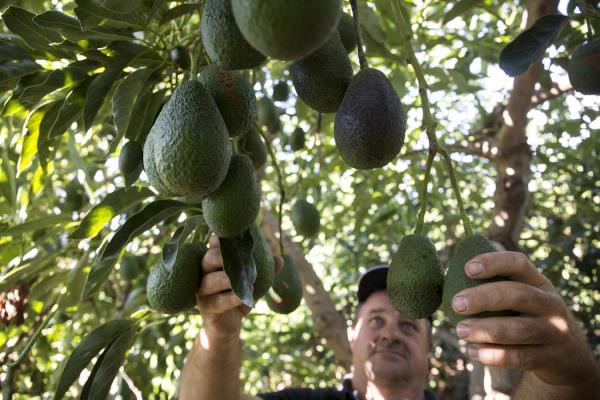The water deficit questions avocado cultivation in Spain.
VU
Today, in the province of Malaga there are around 1.5 million avocado trees in almost 7.000 hectares that produce more than 82.000 tons per year, with a turnover of 200 million euros. Being the main producer of avocados in Europe (as well as mangos), Spain has 12.161 cultivated hectares, while in Portugal there are 1.500 hectares and 200 in Sicily.
According to specialists, each hectare of avocado requires almost 7.000 cubic meters of water per year, and 5.500 for mangos. As a result, plantations had a massive impact on hydric collapse in Axarquia, consuming most of the water in the region. The subtropical climate of this area is too dry for the trees and those resources of dammed water which have increased in recent decades are not enough. The temperature increase caused by climate change led to an intense evapotranspiration and consequently to the water deficit.
The irrigation water for the subtropics comes from La Viñuela reservoir, the biggest reservoir in Malaga region, that can hold 165.43 cubic hectometres. However, now it is at 27.03 percent of its capacity and people in the area also depend on this reservoir.
Farmers obtained a concession for the hydrological year of 3.000 cubic meters per hectare, which is well below previous seasons and which may be even lower if the drought remains. Many farmers have an option to supplement their irrigation with licensed wells which will irrigate the regenerated water immediately. 15 cubic hectometres can be incorporated to the system annually by using all the regenerated water resources.
The central watering board is committed to improve the storage of runoff water by pumping the groundwater that circulates during the rain and creating rafts which will accumulate the rain water. Such rafts are typical for other cities in Spain like Almeria, Murcia or Valencia.
Among the other alternatives of reclaimed water usage are increased irrigation efficiency, the deficit irrigation technique and marine desalination in exceptional cases.





